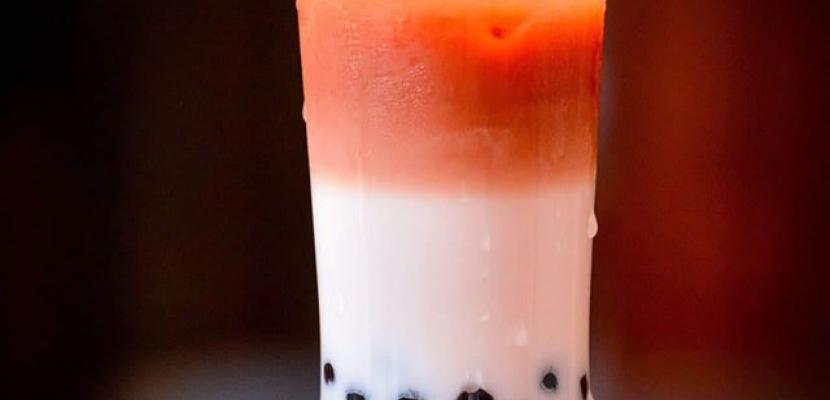Image

A great alternative for plastic straws – straws made from wheat
Published on 13 April 2020

Bulgaria
This is the good practice's implementation level. It can be national, regional or local.
About this good practice
It is probably hard to imagine that something so small as the straw can be one of the greatest pollutants on the Earth! On average 36,5 billion straws are used in Europe causing not only pollution, but a great amount of carbon dioxide emissions for their production. Moreover, in 2018 the EP voted on the "ban on disposable plastic products", so from 2021 all MS are obliged to introduce a ban on the sale of single-use plastic items.
Even though many “biodegradable” alternatives have been marketed recently, it is often misunderstood that they can be composted or can break down naturally.
SLAMka concentrates its efforts in finding a user- and environmental-friendly solution. It produces straws made from wheat stems – an elegant zero-chemical solution which does no harm the environment and production emissions are nearly zero. Wheat straws are made by using renewable sources, they fully degrade in a natural way even when thrown in the back yard. They are suitable for restaurants and bars, for big events and for home use as well, they are stable, environmentally friendly and at a competitive price in comparison to the plastic ones.
Some of the greatest advantages of the wheat straws:
- Fully compostable, even at home;
- Do not get wet like paper alternatives;
- Durable even in hot drinks;
- Secondary product – basically made from non-usable plant waste;
- No added chemicals;
- High level of hygiene;
- Reusable at home;
- Gluten free;
- Stimulate circular economy.
Even though many “biodegradable” alternatives have been marketed recently, it is often misunderstood that they can be composted or can break down naturally.
SLAMka concentrates its efforts in finding a user- and environmental-friendly solution. It produces straws made from wheat stems – an elegant zero-chemical solution which does no harm the environment and production emissions are nearly zero. Wheat straws are made by using renewable sources, they fully degrade in a natural way even when thrown in the back yard. They are suitable for restaurants and bars, for big events and for home use as well, they are stable, environmentally friendly and at a competitive price in comparison to the plastic ones.
Some of the greatest advantages of the wheat straws:
- Fully compostable, even at home;
- Do not get wet like paper alternatives;
- Durable even in hot drinks;
- Secondary product – basically made from non-usable plant waste;
- No added chemicals;
- High level of hygiene;
- Reusable at home;
- Gluten free;
- Stimulate circular economy.
Resources needed
SLAMka has not received any external funding. The micro-enterprise has invested around 2000 EUR own funds - rental space for material processing, transportation, machine development, packaging and web-site design, marketing materials and advertisement. It engages 2 employees.
Evidence of success
SLAMka currently presents on the market two straw diameters and has optimized the production line for 20 000 straws/month. Its customer database consists from more than 40 customers, mainly big restaurants and bars, 4 from them regular ones. It has also started an export to Greece. SLAMka is an eco-activist for environmental-friendly initiatives, ideas and way of living, collaborating with bloggers and social media, participating in eco-events and investing efforts in creating an eco-network.
Potential for learning or transfer
In the context of single-use plastics ban which is envisaged to happen within the coming year, it is crucial to offer an alternative of all those products which are essential part of many people's everyday life in the EU. The available options on the market are diverse - bio-plastic, metal, bamboo, paper, however, most of them only biodegrade when exposed to very high temperatures in proper recycling municipal facilities and if there is no implemented technology to treat them in a way different to regular plastic, they end up in landfills anyway (which is the case in Bulgaria).
Thus, the authorities in all EU regions have to be prepared to deal with the new kind of waste - alternative to plastics.
One of the most environmental-friendly solutions is stimulating the production of compostable items for everyday needs - products leaving nothing behind. This is what SLAMka offers - product made of (plant) waste but generating no waste.
Thus, the authorities in all EU regions have to be prepared to deal with the new kind of waste - alternative to plastics.
One of the most environmental-friendly solutions is stimulating the production of compostable items for everyday needs - products leaving nothing behind. This is what SLAMka offers - product made of (plant) waste but generating no waste.
Further information
Website
Good practice owner
You can contact the good practice owner below for more detailed information.
Organisation
SLAMka

Bulgaria
Yugozapaden
Contact
European Integration Expert